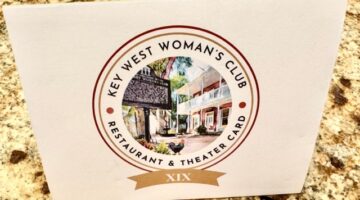Moving To The Future Dr. Bruce Boros Looks At Cardiology And Sees Genetic Testing
The walls at Dr. Bruce Boros’s office on Northside Drive are filled with not just plaques noting his contributions to the community, but pictures of sports and entertainment legends, both locally and nationally. There’s also a portion of a wall dedicated to couples who have been married more than 35 years.
“I love successful people and I love sports. Perseverance,” the cardiologist explains.
The latter trait – perseverance – is a quality with which he is well acquainted. “Making a comeback is rough,” he acknowledged. Because that is what he has done over the past few years. He owns the building at 3401 Northside, moved into it in 2003, but he rented it out to the University of Miami when he became associated with its hospital in 2008. Four years later, “we broke up,” he says flatly. The University still had the lease on the building he owned, but he and two secretaries had to move out.
First, he rented space on North Roosevelt from Dr. Bruce Makimaa and Dr. Richard Walker, then leased what was the Pizza Hut building almost across the boulevard. Now, with the University’s lease having run out, he’s back in his own building on Northside.
He still has the lease on the North Roosevelt building, however, and has turned it into Key West Urgent Care. While he doesn’t see patients there, he’s very proud of that institution and how it fits into his entire practice. His practice also includes a branch in Marathon at 8151 Overseas Highway, where he and his associates divide the days. “Health care has gone out of sight,” he said. “I thought an integrated health care system is what was needed. I wanted to protect my patients, protect my practice.”
But, it wasn’t the past and his comeback that he wanted to talk about this day.
He was looking to the future and cardiology’s future, specifically cardiac genetic testing. “It’s the wave of the future,” he said excitedly. “It’s still in its infancy, but lots of diseases can be more accurately treated if we know more about the patient’s DNA. It’s an exploding field. It goes from the embryo to the grave.”
Identifying chromosomes “will allow us to see the risk for future diseases,” he began to explain. “Right now, about 6 percent of the people are being genetically identified. By 2025, 25 percent will be genetically mapped. So, we’ll see the risk for future diseases such as heart arrhythmia, heart attacks, strokes, heart failure. We’ll know exactly and can medicate responsively. We’ll know which pills will work. For high blood pressure, we’ll know whether to treat with beta blockers or calcium channel blockers or ACE inhibitors.”
Boros and his staff have already started the process by testing 12 people. “Everyone in the office,” he said. “It takes 20 minutes, long enough to fill one and a half inches of a test tube with saliva. No eating or drinking for 30 minutes before.”
Boros said if a person has underlying problems or even a family history of issues, it is likely that their health insurance will pay for the test. Otherwise, the testing costs $500. He also said the result is protected by the GINA Act (Genetic Information Nondiscrimination Act) so that only the doctor and the patient know what the test indicates. He said he believes his practice is the only one in the Keys, except for a Marathon doctor, to conduct the testing.
“February is Heart Month,” he said. “It’s a good time to get started. Genetic information is a huge hammer to get people to change. Their genetics they got from their mother and dad. They’re stuck with it. But, they can take the right medicine, lose weight, not smoke, exercise, eat nutritionally and take care of themselves.
“We’re learning that our chromosomes can be modified for better or for worse. It’s how we behave. But, behavior modification is the most difficult thing for me as a heart doctor to get patients to do. I want to find people who are at moderate or high risk for a cardiovascular event and help them.”
Boros was born in Miami 64 years ago and graduated from the University of South Florida, getting his medical degree from the University of Miami and his cardiovascular training from the University of Texas at San Antonio, completing that in 1981.
His move to Key West was a slow one at first. In 1985, he began doing respiratory work at dePoo Hospital part-time. “I would fly down from Miami on Tuesdays,” he recalled. “Then, it was Tuesdays and Thursdays. After a year, I added Fridays.”
By 1996, he was living in Key West full time. On June 1, 1997, he got 11 other doctors and they formed the Integrated Medical Office. “It dissolved in 2000,” he said. “I stayed in the building and everyone else left.”
He moved to Northside in 2003 “until the breakup. I survived because the whole town stuck by me.”
Dr. Boros pointed to another fact: “I’m now treating my fourth generation of Conchs. I want patient advocate to be my legacy.”
[livemarket market_name="KONK Life LiveMarket" limit=3 category=“” show_signup=0 show_more=0]

No Comment